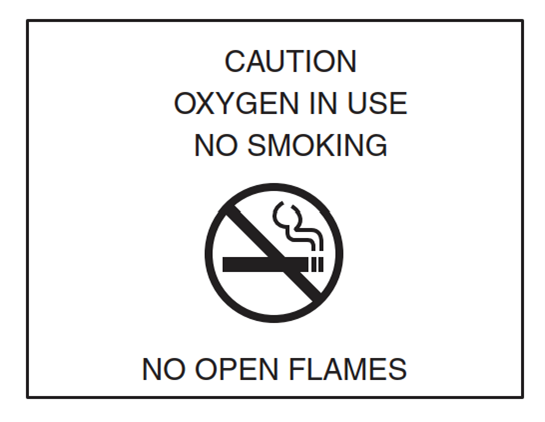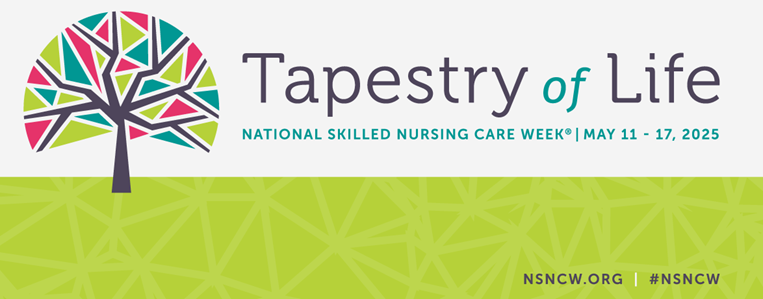The deadline for nursing homes to report health care personnel (HCP) influenza vaccination coverage in the Centers for Disease Control and Prevention’s (CDC’s) National Health Safety Network (NHSN) is fast approaching.
Author: admin
National Dementia Workforce Study Surveys Underway
You can make a difference in how we understand the health care workforce who cares for people living with dementia across the United States.
RNs + Gero Nurse Prep = Smarter Nurses and Better Outcomes
The American Health Care Association/National Center for Assisted Living’s Gero Nurse Prep course significantly increases RNs’ gerontological nursing competency test scores. Registrants can save $200 on Gero Nurse Prep through May 15, 2025, with promo code GROWRNS (all caps).
- Lower rehospitalization rates for short stay and long stay residents
- Fewer deficiencies on average
- Fewer Immediate Jeopardy (IJ) citations
- More stars — twice as likely to be a CMS 5-Star facility (44% versus 19%)
Don’t Miss HealthCap’s Free Restorative Nursing Webinar Series
Restorative nursing is essential for enhancing residents’ quality of life, promoting independence, and improving overall health outcomes. When staff is trained in restorative techniques, communities can better support residents in overcoming daily physical, communicative, and functional challenges, helping them lead fuller, more meaningful lives.
Reminder: ICD-10-CM Coding Updates for April 1, 2025
- Code only a confirmed diagnosis of the COVID-19 (U07.1) as documented by the provider (physician or other qualified healthcare practitioner legally accountable for establishing the patient’s diagnosis). The current guidance that documentation of a positive test alone represents a confirmed diagnosis will no longer be in effect beginning April 1.
- For asymptomatic residents who test positive for COVID-19, query the medical provider as to whether the resident has COVID-19. The guidance notes that false positives are possible, and it is the medical provider’s responsibility to confirm and document a diagnosis.
Today is Certified Nurses Day and Gero Nurse Prep is Celebrating with a Spring Sale!
Certified Nurses Day™ occurs every March 19 and is an annual day of recognition for and by health care leaders dedicated to nursing professionalism, excellence, recognition, and service. The American Health Care Association/National Center for Assisted Living’s Gero Nurse Prep course significantly increases RNs’ gerontological nursing competency test scores. Registrants can save $200 on Gero Nurse Prep through May 15, 2025, with promo code GROWRNS (all caps).
- Lower rehospitalization rates for short stay and long stay residents
- Fewer deficiencies on average
- Fewer Immediate Jeopardy (IJ) citations
- More stars — twice as likely to be a CMS 5-Star facility (44% versus 19%)
March is Developmental Disabilities Awareness Month
Every March, the National Association of Councils on Developmental Disabilities (NACDD) and its partners collaborate to lead Developmental Disabilities Awareness Month (DDAM), an annual campaign highlighting how people with and without disabilities form strong communities together. Established in 1987 by President Ronald Reagan, Developmental Disabilities Awareness Month highlights the importance of fostering a society where people with disabilities are empowered to contribute to their communities. NACDD’s 2025 theme, We’re Here All Year, focuses on how people and programs are always contributing, not just during this observance.
Simplifying Oxygen Signage Requirements
Managing life safety compliance is a complex, multi-faceted task. It requires knowledge in multiple codes, utilization of the proper code editions, and determination of which requirements are applicable to your building. This blog post will break down the requirements around oxygen signage.


Now Available: ICD-10-CM Code Update Files
The Centers for Disease Prevention and Control (CDC) posted the updated ICD-10-CM code files to address revisions to the ICD-10-CM Official Guidelines for Coding and Reporting and other typographical errors. These updates are effective April 1, 2025. The CDC has announced there are no new ICD-10-CM codes effective April 1, 2025.
- Code only a confirmed diagnosis of the COVID-19 (U07.1) as documented by the provider (physician or other qualified health care practitioner legally accountable for establishing the patient’s diagnosis). The current guidance that documentation of a positive test is a confirmed diagnosis will no longer be in effect beginning April 1.
- For asymptomatic residents who test positive for COVID-19, query the medical provider as to whether or not the resident has COVID-19. The guidance notes that false positives are possible, and it is the medical provider’s responsibility to confirm and document a diagnosis.
Now Available: 2025 National Skilled Nursing Care Week® Planning Guide, Resources, and Products
The American Health Care Association (AHCA) is excited to announce the launch of the 2025 National Skilled Nursing Care Week® (NSNCW) Planning Guide, promotional resources, logos/graphics, and products! These materials, available at NSNCW.org, are designed to assist in planning, promoting, and celebrating NSNCW and will provide you with all you need to make this week memorable for your residents, staff, and volunteers.
Begin your NSNCW 2025 preparations today and help us create a week filled with unforgettable moments! We look forward to celebrating with everyone and spreading joy throughout your communities May 11 through May 17, 2025.
HOW TO PARTICIPATE
Here are some ideas on how you can start planning your NSNCW celebrations now.
- Use the Planning Guide to plan your activities for the week. Or use them to help come up with your own unique celebrations!
- Begin planning how you will promote NSNCW activities with those outside your building. Use materials in the promotional toolkit to reach out to media, local and national elected officials, and your surrounding community to spread the word.
- Use the NSNCW graphics and logos to promote NSNCW in your newsletters and other materials.
- Visit NSNCW.org for a wide selection of Tapestry of Life themed gifts and decorations to help you celebrate the week. Be sure to order early!
Don’t forget to share! Be sure to tell us how your staff, volunteers, residents, and families are celebrating. Share your inspiring stories, photos, videos, and other content with AHCA/NCAL at storiesofcare@ahca.org. Remember to tag @NationalSkilledNursingCareWeek on Facebook and in any NSNCW-related posts and use #NSNCW.
ABOUT THE THEME
Tapestry of Life highlights the meaningful stories that make up each person’s journey in skilled nursing care. From residents and families to caregivers and staff, everyone adds a unique thread that is woven into this vibrant tapestry. This theme celebrates the connections, resilience and strength that unite us all. Learn more about NSNCW.








